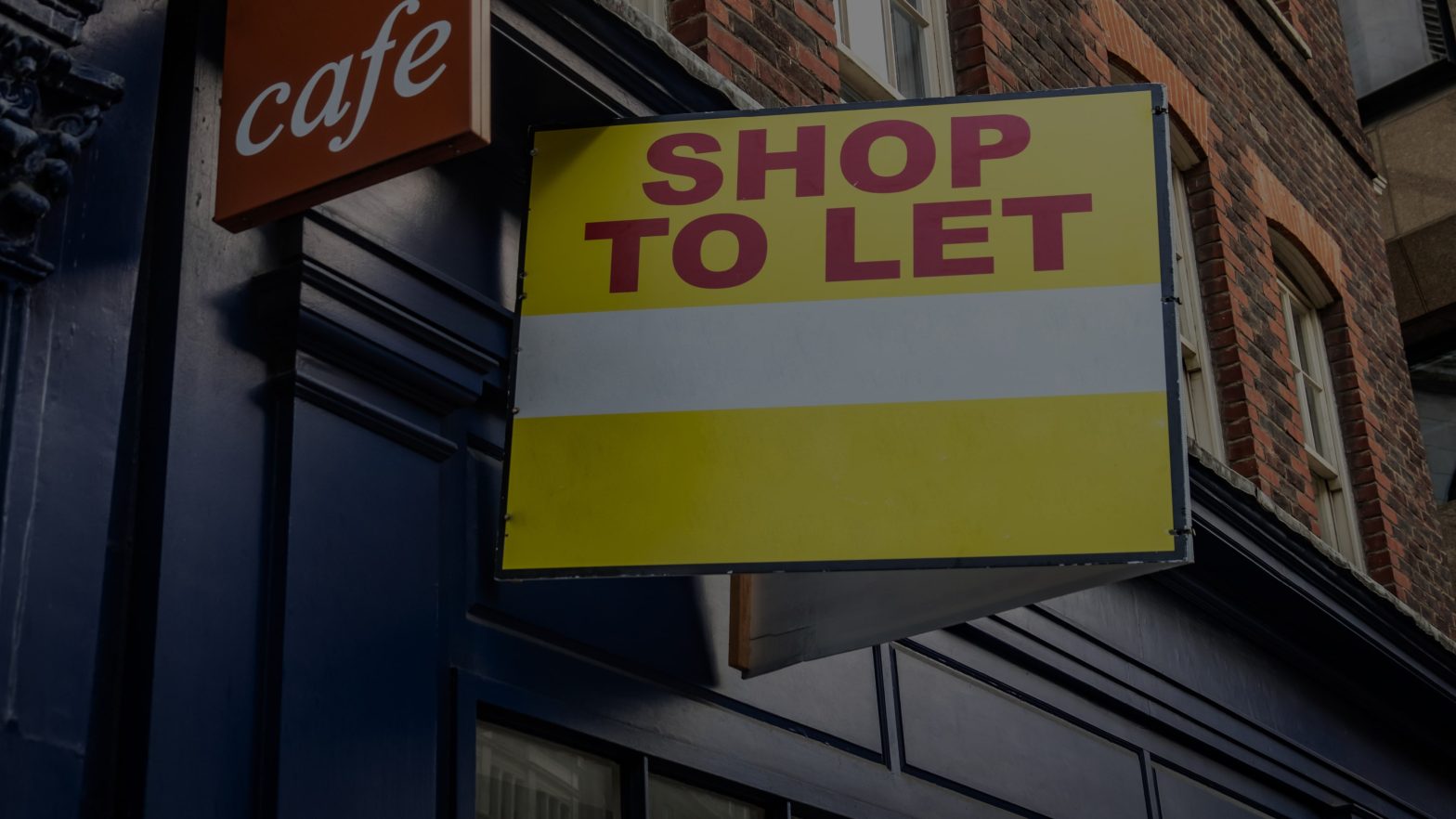Options For Struggling Commercial Property Landlords

Throughout the three Coronavirus lockdowns and the severe trading restrictions of the past 13 months, business owners have received a good deal of coverage regarding the financial, professional, and personal cost they continue to suffer. Less visible, and perhaps garnering less sympathy are the landlords of these businesses, who, following the plummeting of retail and hospitality sales, have been left with a swelling pile of rent arrears which tenants are often unable to pay.
It is private investors with modest property portfolios that have been hit hardest. Unlike large investment trusts and pension funds, which have greater cash reserves, those with fewer than 50 commercial properties based in the High Street often live solely off the rent (after mortgages and expenses have been paid). One investor told the Financial Times:
“We’ve made it clear to [tenants] — we access no grant money, we live off the rent.” We don’t want any empty shops, that’s the last thing we want. But it’s fragile. If there are any missteps now, if business rates [support] or the furlough scheme are removed too early, we could see chaos.”
For high street landlords, things look set to remain challenging in the short term but the pandemic may result in an unexpected revival of local communities full of independent retailers.
Predictions around how the High Street will change over the next few years
Even before the Coronavirus pandemic, due to online shopping, retail “footfall” UK-wide had already declined by an average of 1.3 per cent a year between 2011 and 2019, and by more in some areas. Working from home, which discourages the need to pop out to the shops at lunchtime, is likely to see this figure increase. Rents in some high streets have fallen up to 75 percent and unprofitable premises are now difficult to sell, especially given that most banks require that a commercial property be tenanted for at least 12 months before the sale and there is an unbroken rental history over that period. This leaves private landlords and small companies vulnerable to insolvency.
However, the future is by no means bleak. It has been predicted that with more people working from home, local high streets will see a resurgence in custom. People who actually ‘live’ in market towns rather than simply returning to them to sleep are more inclined to invest in their local community. Furthermore, independent retailers will swoop into properties left empty following the collapse of chains such as Arcadia and Debenhams.
The anticipated High Street revival will take time and at present, social distancing restrictions are still in place. So how can individual commercial property landlords and investment companies ride out the next 12-18 months?
Options available to struggling commercial landlords
There are several options small commercial property landlords can take which may allow them to successfully navigate the current economic climate.
Evictions
The moratorium on evicting tenants will be lifted in June 2021 (although this is by no means a certainty as the ban has been extended several times). However, this is far from an ideal solution as a) the Courts will quickly become jammed with similar cases, and b) you will be left with an empty property at a time of economic uncertainty.
Regearing
This option involves negotiating a win-win for both the landlord and tenant by having a longer tenancy at a lower annual rent. Any arrears built up throughout the pandemic are often factored in. This option provides both parties security and gives the tenant breathing space to get their business back on its feet.
Tenants and CVAs
Company Voluntary Arrangements (CVAs) have been used by chain store retailers for several years. A CVA allows a company to pay creditors over a fixed period. For a CVA to be put in place, 75% of creditors must agree to it. The advantage for the company is it can avoid permanent insolvency. For unsecured creditors, such as landlords, it means they recoup some if not all of what they are owed.
To ensure your best interests are protected should one of your tenants propose a CVA:
- Attend the creditors meeting where the terms of the CVA will be put to the company’s creditors. You do not have to attend the meeting (of which you will be given 14 days’ notice) but failing to do so means you will lose out on a key opportunity to influence the terms of the CVA and protect your interests.
- Monitor your tenant’s liquidity throughout the CVA period. Also do not agree to the CVA without conducting due diligence on the realistic prospect of the company being able to meet the proposed CVA terms.
- In a CVA, a landlord’s claim comprises of two parts: a) the rent in arrears, and b) future rent and dilapidations. As b) is an unascertainable sum, it will automatically be given a value of £1 unless the CVA proposals state otherwise, or the Chairperson of the creditors meeting agrees to assign a higher value. Seek legal advice on submitting evidence for a higher value to be assigned to the unascertainable parts of your claim, especially if your tenant is planning to relocate to a smaller premise. Factors such as the time it will take to re tenant the property and dilapidation claims will need to be included in the proposal.
Final words
The Coronavirus pandemic has hit landlords and their tenants hard. However, if history is anything to go by, there will be a resurgence in consumer spending once the crisis ends. A Commercial Property Solicitor can advise you on the best strategy to take. This will ensure your portfolio of properties is ready to take advantage of the post-pandemic boom.
To discuss anything mentioned in this article, please call us on 02476 231000 or email enquiries@askewslegal.co









